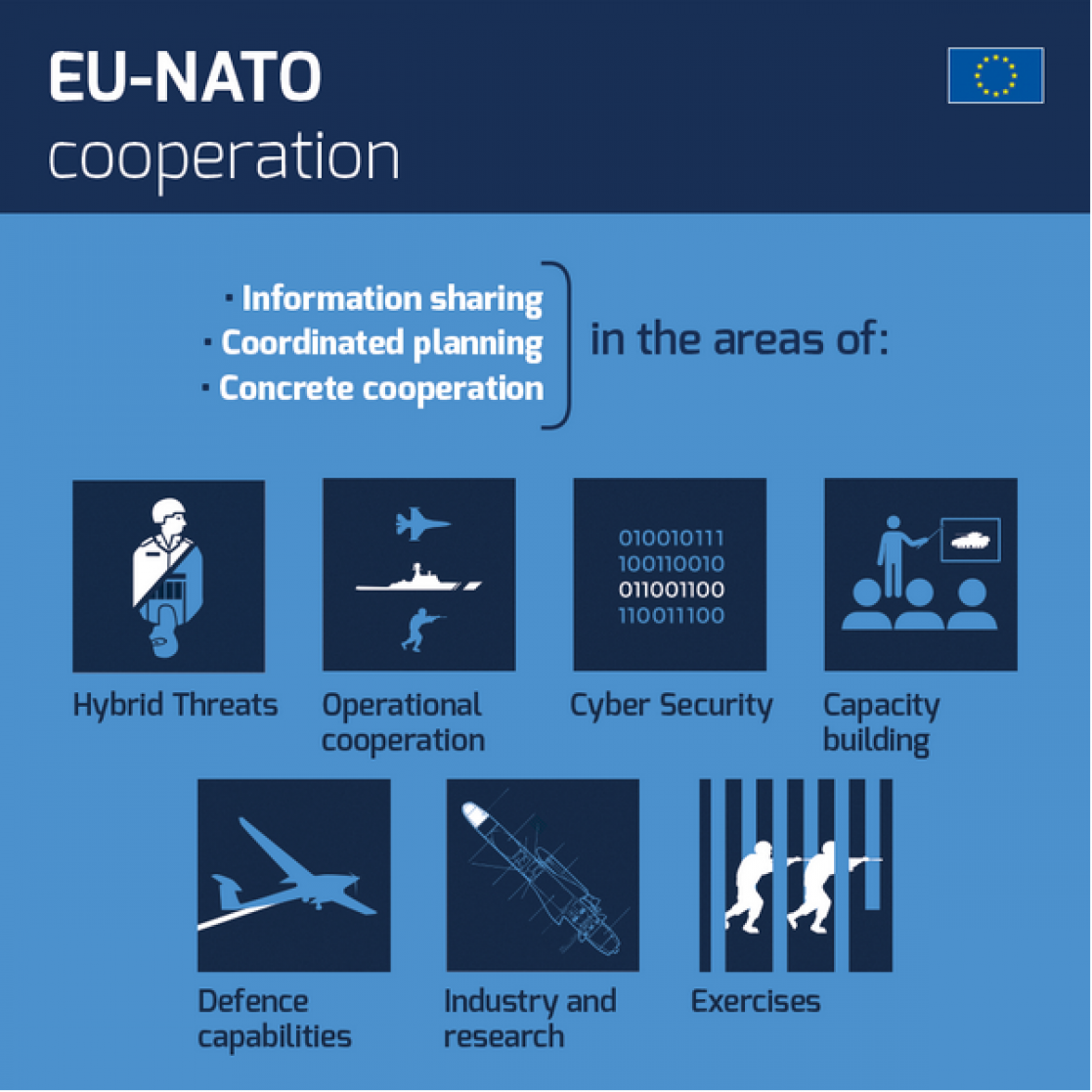EU-NATO cooperation on foreign ministers' agendas

EU-NATO cooperation constitutes an integral pillar of the EU’s work aimed at strengthening European security and defence, as part of the implementation of the EU Global Strategy. It also contributes to Trans-Atlantic burden sharing. A stronger EU and a stronger NATO are mutually reinforcing.
The strategic partnership between the EU and NATO was boosted in 2016 with the signature of a Joint Declaration. It outlined seven concrete areas where cooperation between the two organisations should be enhanced:
- Countering hybrid threats;
- Operational cooperation including at sea and on migration;
- Cyber security and defence;
- Defence capabilities;
- Defence industry and research;
- Exercises;
- Supporting Eastern and Southern partners' capacity-building efforts.
Building on this, a common set of concrete actions are being implemented, with new topics, such as counter-terrorism, military mobility and women, peace and security being added in 2017.
Highlights include the establishment of a European Centre of Excellence for Countering Hybrid Threats in Helsinki and first parallel and coordinated exercise EU PACE17/CMX17 to simulate and stimulate crisis prevention and response.
The EU and NATO have strengthened their exchanges at all levels, from operational cooperation in the field, to enhanced coherence in defence capability planning.

EU-NATO cooperation takes place on the basis of key guiding principles: openness, transparency, inclusiveness and reciprocity, in full respect of the decision-making autonomy and procedures of both organisations without prejudice to the specific character of the security and defence policy of any Member State.
